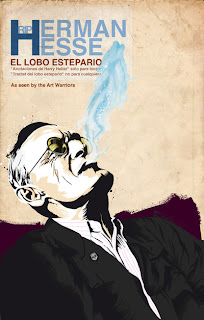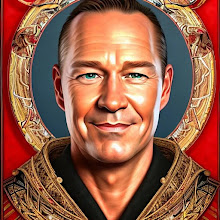Machiavelli: A short introduction
An introduction to Niccolò Machiavelli’s life and thought, including his influence on politics and political theory.
Background
Niccolò Machiavelli (1469–1527) was born in Florence as a lawyer’s son. He was educated according to the humanist ideals of the Renaissance with the focus on Latin and the classics, but beyond that, few details are available about his childhood and youth. It is known that he spent his youth in a city with continuous political instability and tumults: notable events include the Pazzi conspiracy and its aftermath, the end of Medici rule, and the reign of the Dominican friar Girolamo Savonarola. The fall of the friar was a formative experience for Machiavelli, and it is used as an example in The Prince (Chapter VI).
Soon after Savonarola was toppled and burned, Machiavelli entered public office in the Florentine republic. Under the titles of Secretary of the Second Chancery and Secretary to the Ten of Liberty and Peace, he was assigned different kinds of tasks. Among the most important of these were diplomatic missions. During these, he had the opportunity to learn from many of the most skilled leaders of his time in Italy and neighboring regions, and some of his writings from this period are duplicated in The Prince as well.
In 1512 the Medici returned to Florence, which meant the end for the republic. First Machiavelli lost his job; the next year he was accused of conspiring against the new government and was tortured. Although he was freed soon, Machiavelli found himself unemployed with no political future. He decided to go into voluntary exile in the countryside, and in the following years he occupied himself with thinking, reading and writing.
Literary career
Machiavelli’s experiences as a young man are reflected in his works. First of all, the instability of Florence was a major cause of his passion to understand how states are managed. Secondly, his humanistic education is evident in the Discourses on Livy, superficially a commentary on the work by the Roman historian but in practice—as some argue—an original work of political philosophy.
The Prince
The Prince (Il Principe) is Machiavelli’s most famous book. It is also one of the most famous works in the history of political philosophy, although it is perhaps not as philosophical as the Discourses.
The fame of the book rests on its objective and pragmatic approach, even to the point of cynicism, to political action. Machiavelli makes observations about the actual conduct of political leaders and looks at whether or not they achieve the results they set out to achieve. He then uses these considerations as a basis of practical recommendations, and these recommendations frequently go against common morality. Does the end, political stability, justify the means?
It is not obvious what Machiavelli wanted to achieve by writing The Prince. In the dedicatory letter he appears to be requesting a job working for the Medici government, but it has been noted that he undermines his own case by some of the advice he gives in the work (Chapter XXIII). Particularly the ending of the book has been interpreted by some to mean Machiavelli’s ideal was a unified Italy, and that he justifies his immoral advice with patriotic aims.
Discourses on Livy
Discourses on the First Ten Books of Titus Livius (Discorsi sopra la prima deca di Tito Livio) is in many ways a different work from The Prince, although how different it actually is has been a matter of dispute. In the second chapter of The Prince Machiavelli himself makes a distinction between the books in terms of subject matter: while that book is about principalities, the Discourses is about republics. Nominally a commentary on Livy’s work on Roman history, the Discourses has been read as a rather abstract book: the historical examples Machiavelli uses are meant to teach the reader more general, eternal truths about the political reality.
Machiavelli has a lot to say about how a republic should be managed. The book is divided into three books with different themes: first Machiavelli talks about the internal structure of the republic; after this he reasons about matters of warfare; finally he returns to the theme of The Prince, individual leadership.
According to the classical view of Plato and others, all constitutions tend to degenerate into worse ones. This is because of their essential weaknesses. Aristotle thought the problem could be solved by having a “mixed” constitution, and Machiavelli agrees with this conclusion, but for different reasons: in contrast to the classical philosophers, Machiavelli suggests that the main task of political institutions is to deal with contingency. In general Machiavelli has in mind a picture of a republic with a vibrant, free political culture, and in which dissent is not only tolerated but institutionally channeled to further the common good.
Machiavelli believes in military might in foreign policy. “Necessity” is an important concept for him, and he uses it to determine whether or not the republic should fight a war: necessary wars should be fought, others not, and the republic should always be prepared for a necessary war. A crucial point is that offensive wars can be necessary as well. Thus Machiavelli argues not just for having a strong army; he also advocates using it for imperial purposes. Again, Machiavelli relies heavily on the example of the Romans—even in technical matters, although military technology has surely made advances since the Roman Empire.
Republics too need strong leaders. In the third book of the Discourses Machiavelli explores the twofold role virtuous individuals play in political culture. First, they inspire and beget virtue in others, and citizen virtue as well as military virtue is vital in protecting the republic from internal as well as external dangers. Although Machiavelli has confidence in the multitude, individual leadership is necessary in some particular affairs. The second function of virtuous men is to prevent corruption. All peoples tend to become corrupt in time, and this is because they gradually lose their fear and respect for the law. Therefore a founding father figure is needed to perform “excessive and notable” executions to refresh people’s memories.
Mandragola (or the Mandrake Root)
During his lifetime, Machiavelli was best known as a playwright, and the Mandragola is his most original play. In this comedy Machiavelli applies his views to ordinary, seemingly nonpolitical life: Callimaco, a young man, is attracted to young Lucrezia, who is unfortunately married to Nicia, an older man. Thus Callimaco agrees to a plan devised by the Machiavellian figure Ligurio to gain access to Lucrezia.
As this is a work of fiction, and not a long one to read, I will not reveal the whole plot here so as not to spoil anyone’s fun. The Mandragola is regarded as a classic of Italian literature, illustrating Machiavelli’s versatility as an author. It touches on many of the themes common to his political works: people’s ambition to get what they want, the gray areas in moral life, criticism of the church and so forth. But here his irreverent attitude is more visible than in his more “serious” works.
Florentine Histories
In 1520 Machiavelli was finally rewarded for his efforts: the Medici assigned him the task of writing the history of Florence. The Florentine Histories (Istorie fiorentine) is his longest work. It includes the period between years 375 and 1492, but the main focus is on the events that took place after 1434.
In the work Machiavelli follows the ideals of humanist historiography. He is not just reporting facts in a chronological order, but also adds to them and interprets them. The goal is not just to tell everyone “what really happened”, but also to find in particular historical incidents universal moral lessons: history is meant to elevate the reader. Particularly notable are the invented speeches by important historical figures.
The Histories is Machiavelli’s last major work. It was completed in 1525 and presented to Clement VII, the Medici pope. In 1527, Rome fell, the Medici were again forced to leave both Rome and Florence, and Niccolò Machiavelli was again unemployed. He died later that year, and was buried in the Basilica di Santa Croce.
Other works
In addition to those already mentioned, Machiavelli wrote several minor works, including shorter political and historical texts, poetry and plays. The most important of these is the Art of War, a dialogue on military affairs. The Life of Castruccio Castracani is interesting as a stylistic prototype for the Florentine Histories. In his poetry as well as his correspondence there are alternative formulations of some of the views he presents in his two major political works. The Exhortation to Penitence, one of his last writings, is a sermon and thus a curiosity among Machiavelli’s works.
Later influence
During the last 500 years The Prince has been a favorite of numerous political leaders—Louis XIV, Napoleon Bonaparte and Benito Mussolini being among the most famous in the long list of powerful men. Because of the purely technical lessons one can learn from the book, it is useful to all politicians no matter what their ideologies are. This may have contributed to the popular belief that the book is just a manual on how to gain power by any means necessary, with no regard to how you should use that power. This is the Shakespearean view of the man as the “murderous Machiavel”.
There is also the long tradition of interpreting Machiavelli’s works as patriotic exhortations. The idea can be found in Hegel, and during the 19th century Italian Risorgimento Machiavelli was recognized as an important early proponent of Italian unity. According to the patriotic view, the final chapter of The Prince can be taken to summarize all of his work. Many see in the Discourses the seeds of modern republicanism. Jean-Jacques Rousseau even puts forth the theory that in the Discourses Machiavelli presents his true, republican view, while The Prince is a satirical work. But it has to be said that Machiavelli’s republicanism is not based primarily on moral principles, but also on amoral considerations: a republic is simply a more powerful and enduring political and military machine. Machiavelli’s legacy is the strongest in political science. Many authors have claimed that his goal was above all to understand and explain political phenomena in scientific terms. Although this is a controversial statement about his true aims, his influence on political science is unquestionable. If he did not yet separate politics from ethics, he paved the way to those who did.
Further reading
The Stanford Encyclopedia of Philosophy has Cary Nederman’s academic introduction that you should definitely have a look at, particularly if you want to study Machiavelli more seriously.






